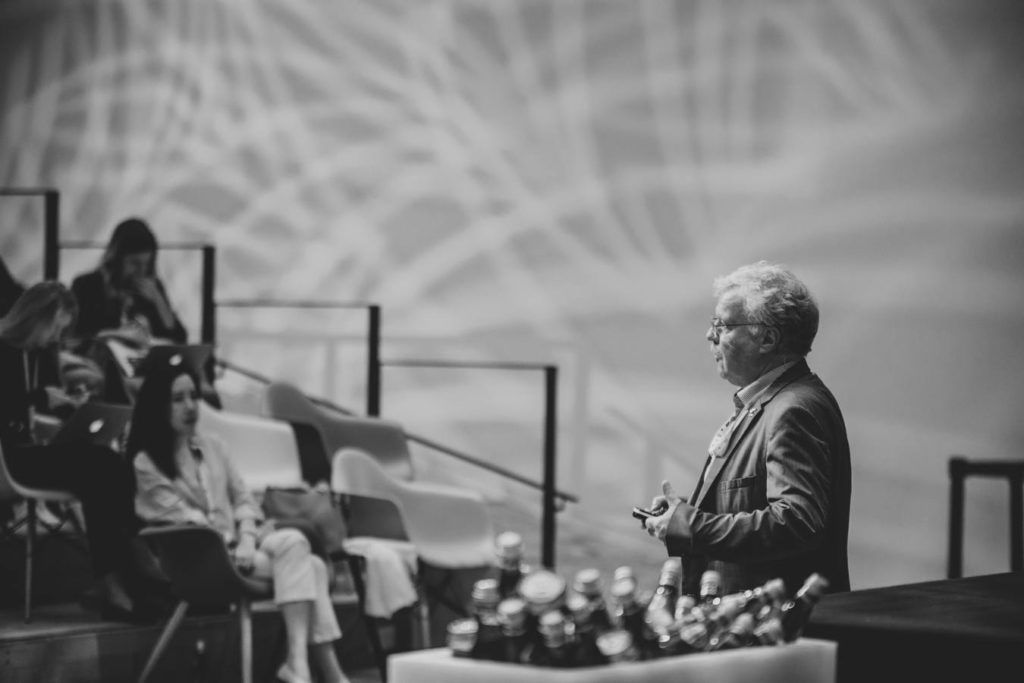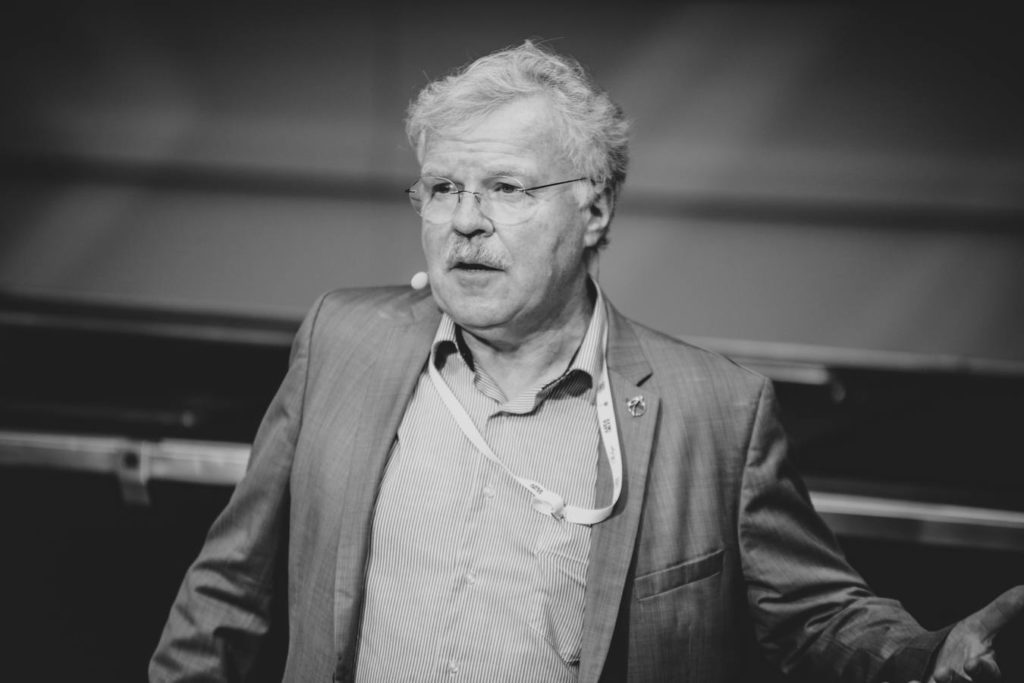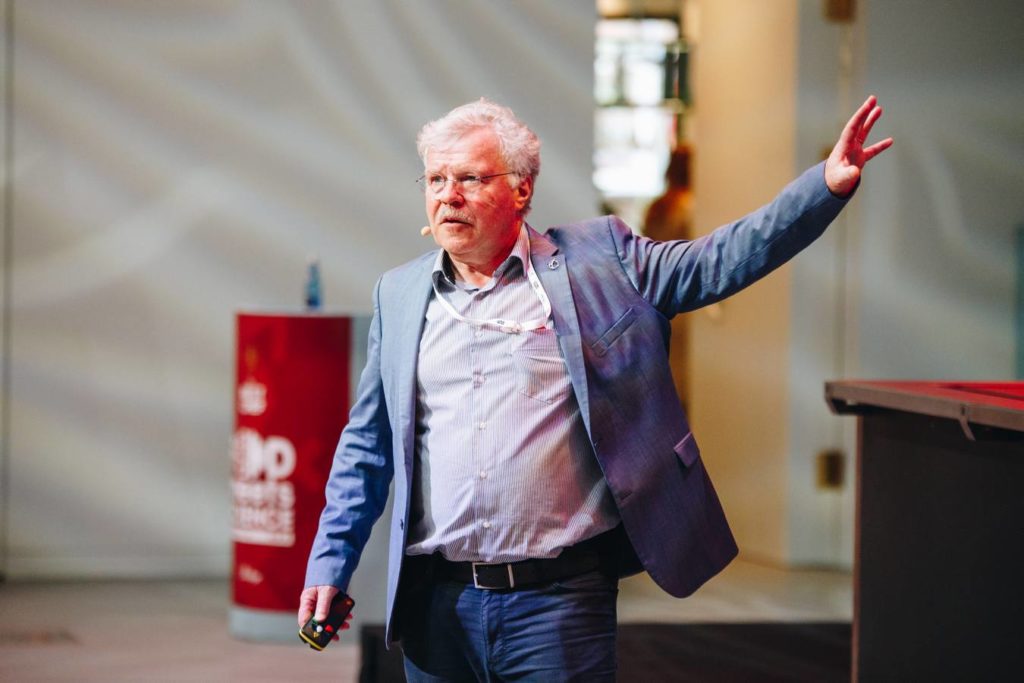What must the human body go through, while it is in weightlessness? How do we cook, eat and make ourselves comfortable food-wise in space?
Professor Reinhold Ewald headed the Flight Operations Division within ESA’s ISS Operations Department at the Columbus Control Centre near Munich from 2006 to 2011. He served as Advisor to the Head of the Director General’s Cabinet at ESA’s headquarters in Paris from 2011 to 2014, followed by a position at the European Astronaut Centre in Cologne, promoting the scientific achievements of the ESA research program on the International Space Station. He was appointed Professor for Astronautics and Space Stations at the Institute of Space Systems (IRS) at the University of Stuttgart in 2015.
What is most unnatural for astronauts in space?
‘A lot of changes begin happening to your body the moment you reach space,’ states the professor. Astronauts don’t have natural day and night cycles. Instead, they can see 16 sunrises and sunsets in a day. Therefore, they don’t feel the timing, which is commonly connected with meals, like breakfast in the morning.
They can be hit by harsh radiation more than people on Earth. This can have an effect on organic material. For example, radiation changes some sensitive vitamins. Vitamin C is almost degraded when it is hit by solar radiation. Moreover, in space, astronauts are exposed to loud background noise. The sense of smell is also impaired. And, last but not least, astronauts are isolated from family and friends for a long period of time.
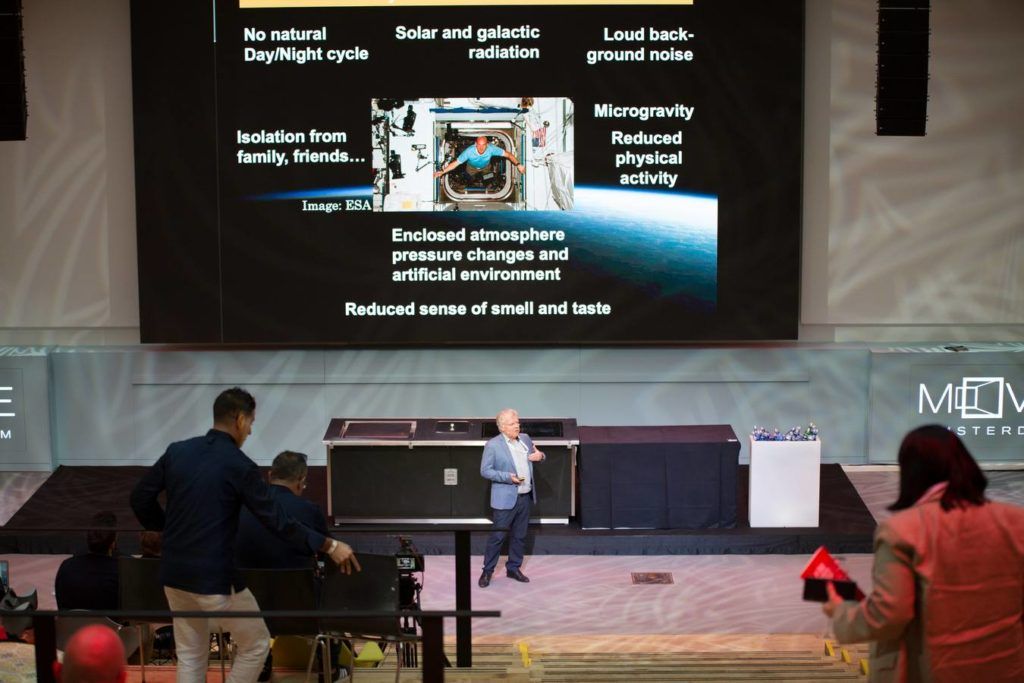
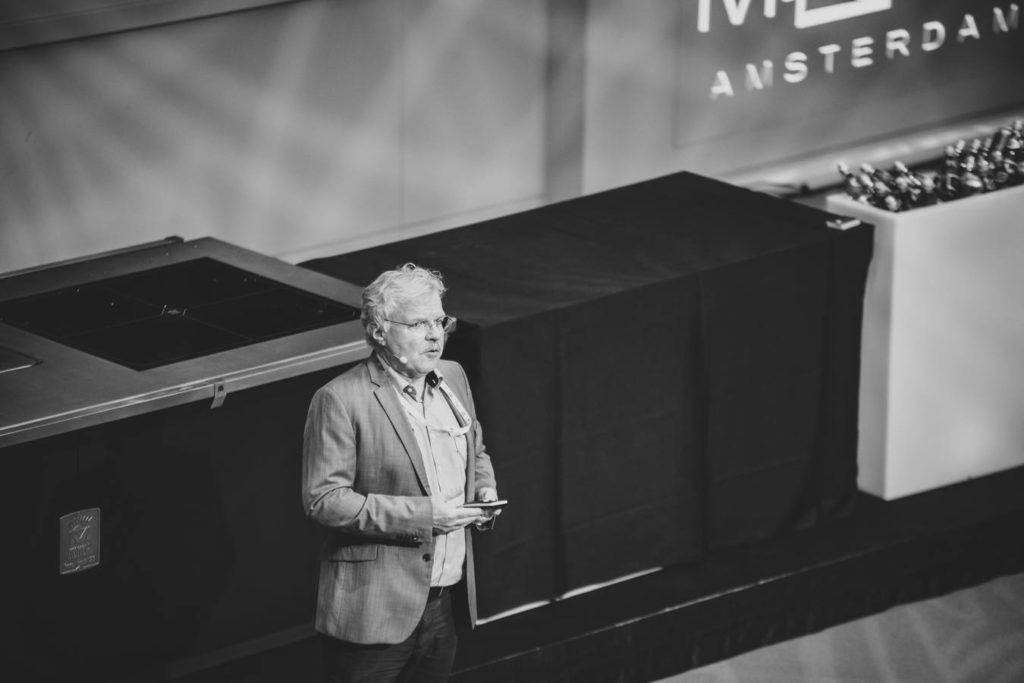
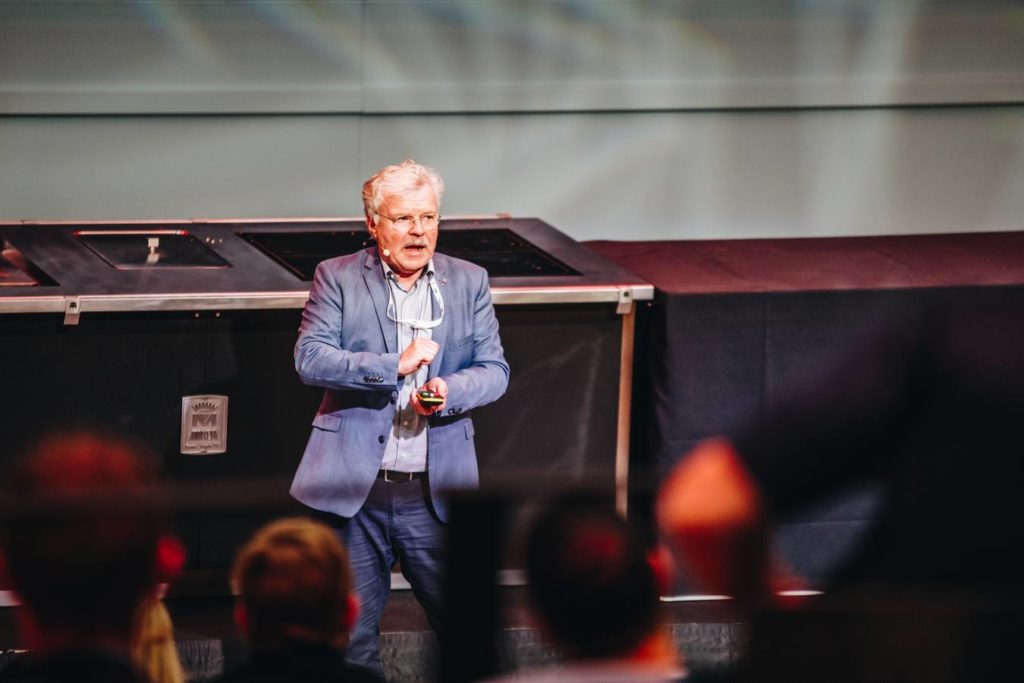
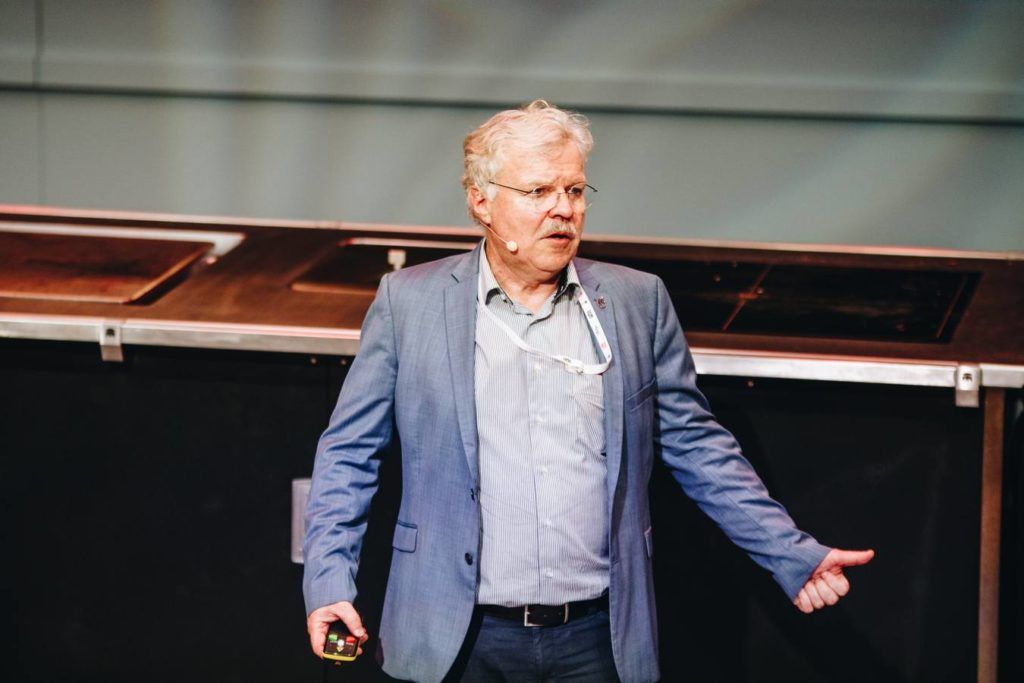
Microgravity
Reinhold Ewald said that all these aspects come down to microgravity. Microgravity is the effect of the free fall condition, which means that astronauts no longer have a sense of up or down. Another illustrative example of how a person’s body is affected, is that they cannot walk, and this affects their bones, muscles, leading to changes throughout the body.
The human body and weightlessness
The professor found some research and facts particularly interesting. The whole digestive process is not dependent on gravity. There is no need to support the lungs in breathing or the kidneys in eliminating poison substances from the blood and body. They function the same way as on the earth. This means the human body is developed in a way that also extends into space.
Food intake in space
Our guest pointed out some research and experiments having an impact on food intake in space. For example, the first couple of days in space could be connected with space motion sickness. Because people can’t jump or even walk in space, they lose calcium from their bones. They also noticed that, in space, the core temperature is 1 degree higher. So, the energy balance is completely different. Astronauts have to counteract this and many other symptoms with certain provisions. If you want to hear more about new standards of nutrition and caloric values for astronauts – please check out this video.
